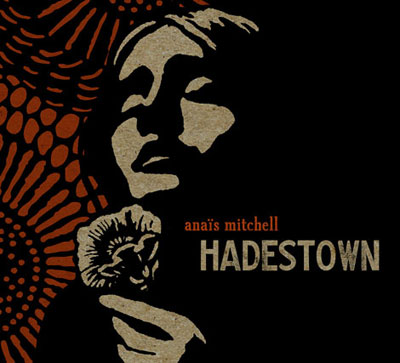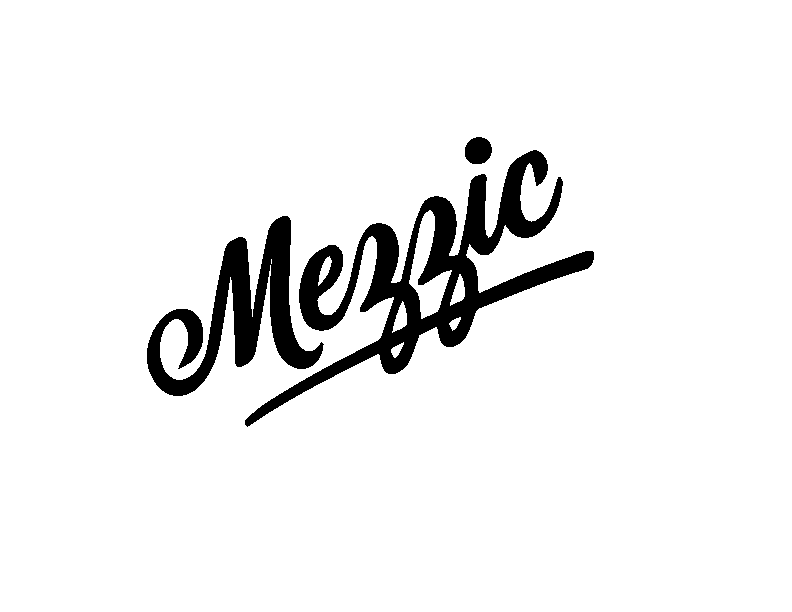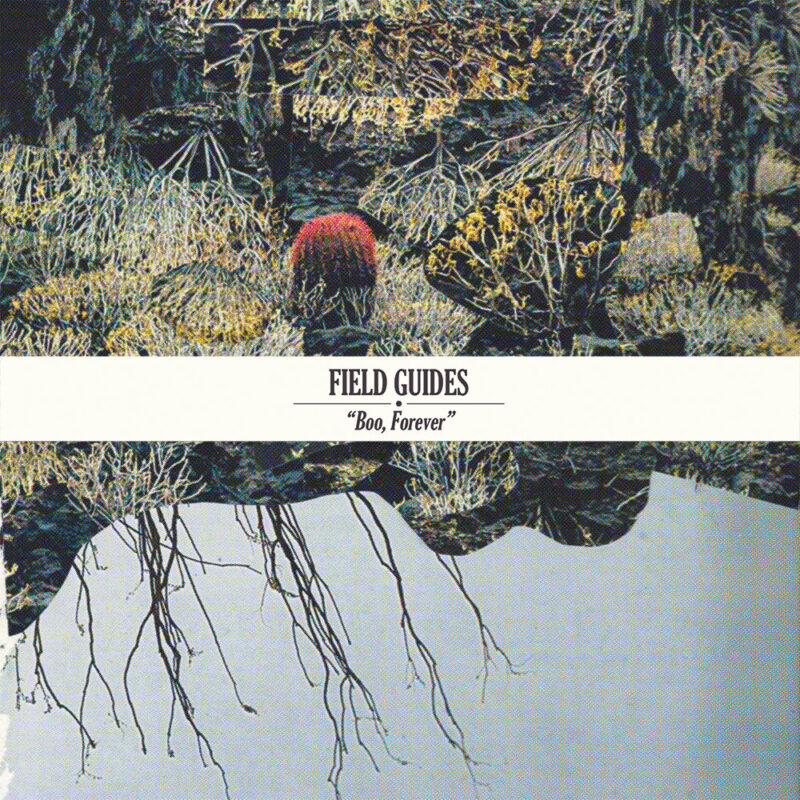
REVIEW: ANAIS MITCHELL – HADESTOWN (2010)
It’s a pity when things slip by without you noticing. Yet there is always some catch-all, or some friend who steps in and prevents a potential repeat in correcting your ways. It’s a reason why we appreciate people’s company. Be it huddled around a bonfire or your companion on a road trip.
It’s a tragedy when things slip out of your hands. So when pity met tragedy this spring on an all-too-eventful road trip, the perpetual despair of the “too much music, gonna miss something good” dilemma was roundly defeated it when my traveling companion pulled the curtains back on a rare, exceptional song. 50 seconds of interesting whispered curiosity burst open into despairing beauty, the kind that could encapsulate The Devil and God are Raging Inside Me in a single chorus.
Anais Mitchell’s Hadestown is a folk opera years in the making. The Addison County, Vermont songwriter began weaving the threads together in 2005 of a modern variation on Orpheus and Eurydice. In the Greek tragedy, the poet and musician Orpheus journeys into the Underworld in order to bring his wife, Eurydice, back from death. However, Hades imposes a unfortunate condition as collateral. Think Princess and the Frog, stripped of its bright optimism and dulled into a dusty Depression-era town long befallan befallen Ancient Gods’ graces. Assisted by producer Michael Chorney, what would become the 2010 album was unveiled fall 2006 in Vermont thanks to Ben T. Matchstick. The first run was such a success that it returned a year later, with Todd Sickafoose in the orchestra, for a second run that crisscrossed the state.
Hadestown the album is that opera, that dark musical that has a perfect cast without the troubles of losing cast member after cast member over time. Work began in 2008 thanks to Mr. Sickafoose at the helm with Mitchell convincing Ani DiFranco and Justin Vernon to join. Ani drew forth Iowa folk maestro Greg Brown, and was soon rounded out with Ben Knox Miller of The Low Anthem and The Haden Triplets (Tanya, Petra and Rachel Haden). The prior Disney reference is no knock, as Ani’s portions were recorded in New Orleans. The other sessions spanned Eau Claire, Iowa City and Los Angeles until the finished product was released five years later with the new, recorded additions of “Wedding Song”, “Flowers (Eurydice’s Song)” and “Nothing Changes.”
Your cast for the album: Eurydice (Anais Mitchell), Orpheus (Justin Vernon), Hades (Greg Brown), Hermes (Ben Knox Miller), Persephone (Ani DiFranco) and The Fates (The Haden Sisters).
“Wedding Song” sets the story as Orpheus responds to Eurydice’s wedding concerns. Stripped of economic prosperity, Orpheus promises to deliver through music the wedding band, the wedding table and the wedding bed. Anais’ singing, buoyed over a brush snare and tentative, then relaxed acoustic and slide guitars, reach with an innocence and concern contrasted by Justin Vernon’s powerful, layered vocals. Pull back the preconceptions you may have and that harmonization provides the auditory comforting eiderdown to Eurydice’s concerns. The following lays the groundwork with Orpheus describing Mitchell’s Hades as the “king of the kingdom of dirt” built by “a million hands that were not his own and a million feet that fell in line and stepped in time with Hades’ step” on “Epic (Part One)”. Sonically the change is a bit dramatic between the two, descending quickly in tempo before raising far more gracefully into “Way Down Hadestown.” The song exudes New Orleans and has it hanging from each note as thick as southern moss growing on the staffs. The verses, shared among Hermes, Persephone, Eurydice and Orpheus, are the establishing shot with actors all laid out and personalities shined upon. Harmonica, rim taps, banjo and backing choruses add a sweeping theatrical feel. Randy Newman could not have created a song that approaches this one.
Hades himself comes in a short time later on “Hey, Little Songbird.” Greg Brown’s voice could only have been better done by James Earl Jones, capturing a road-wisened deviousness where the notes would carry a burdensome weight…had lifting not been outsourced to the downtrodden people of Hadestown. Anais’ Eurydice, when she calls forth Orpheus, is the fatefully caged voice unknowingly beguiled into the Underground; “You’d shine like a diamond down in the mine and the choice is yours if you’re willing to choose.” The singing works too well at convincing the listeners, providing a stunningly clear image of Hades circling, enticing a shrunken, poor Eurydice that serves Anais Mitchell’s rendition of the tale so vibrant. “Gone, I’m Gone” are the lights dimming upon her through the Fates before the spotlight is extinguished.
“When the Chips are Down” returns to the NOLA swing, contrasting the “folk” in this opera so wonderfully prior to the heart-wrenching “Wait for Me.” The plucks and poignant piano, followed by softened march of trumpet and strings denote Hermes’ instructions as well as Orpheus’ determination. The chorus, however, is the most chest-cavity-crushing singing yet heard from Justin. The length of the word “wait”, the dip word after word, the breathed exhaustion is too calculated and masterfully orchestrated to be denied. It’s the album’s equivalent to the allure of Hades’ proposition to Eurydice, in whether or not you’ll too be captured.
Anais then steps forward, joining in on the crowd Underground and then for the next few songs until Justin returns on “If It’s True.” The transitions here are seamless, flowing with an “Our Lady of the Underground” that-if isolated-can leave past Ani listeners a bit flabbergasted with her best performance, in this humble writer’s opinion, since anything on Evolve. In fact, that’s the charm of Anais Mitchell’s work. She managed not only to pull out a cohesive, touching opera but the fellow musicians, even with their established names, pull out pinnacle performances. To make it feel more theatrical, another instrumental intermission could have been placed to allow costume and set changes in the first half of the album instead of the two placed so close. However, that’s from the former theater person in me and truly minor compared to the strength of Hadestown.
It’s tricky to tug emotions through music, far more so to the extent that Anais Mitchell’s Hadestown achieves. The musicians involved performed an album that effortlessly induces visuals so clear and coherent that Anais succeeds in retelling the ancient tale of Orpheus and Eurydice. While the term folk opera may seem limiting due to the jazz infusions, it should never prevent someone from giving Anais Mitchell’s masterpiece a listen.
Rating: 9.2/10
Founder, Editor, Writer, Photographer. (Austin, Texas)




Post a comment